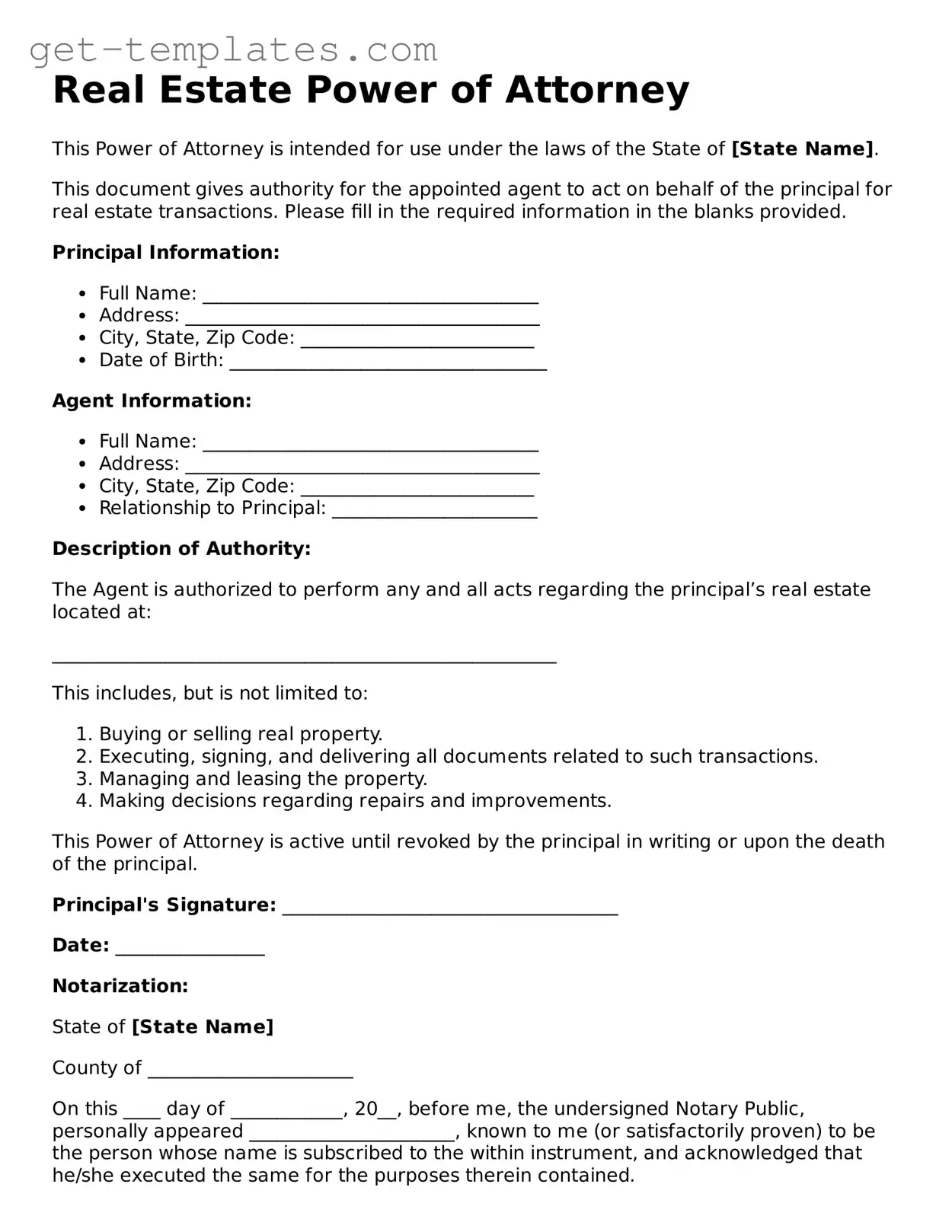Attorney-Approved Real Estate Power of Attorney Form
The Real Estate Power of Attorney form is a legal document that allows one person to authorize another to act on their behalf in real estate transactions. This form can be crucial for individuals who are unable to manage their property matters due to various reasons, such as being out of state or having health issues. By granting this power, property owners can ensure their interests are represented effectively and efficiently.
Get Document Online

Attorney-Approved Real Estate Power of Attorney Form
Get Document Online
You’re halfway through — finish the form
Finish Real Estate Power of Attorney online — edit, save, download made easy.
Get Document Online
or
⇓ PDF Form
